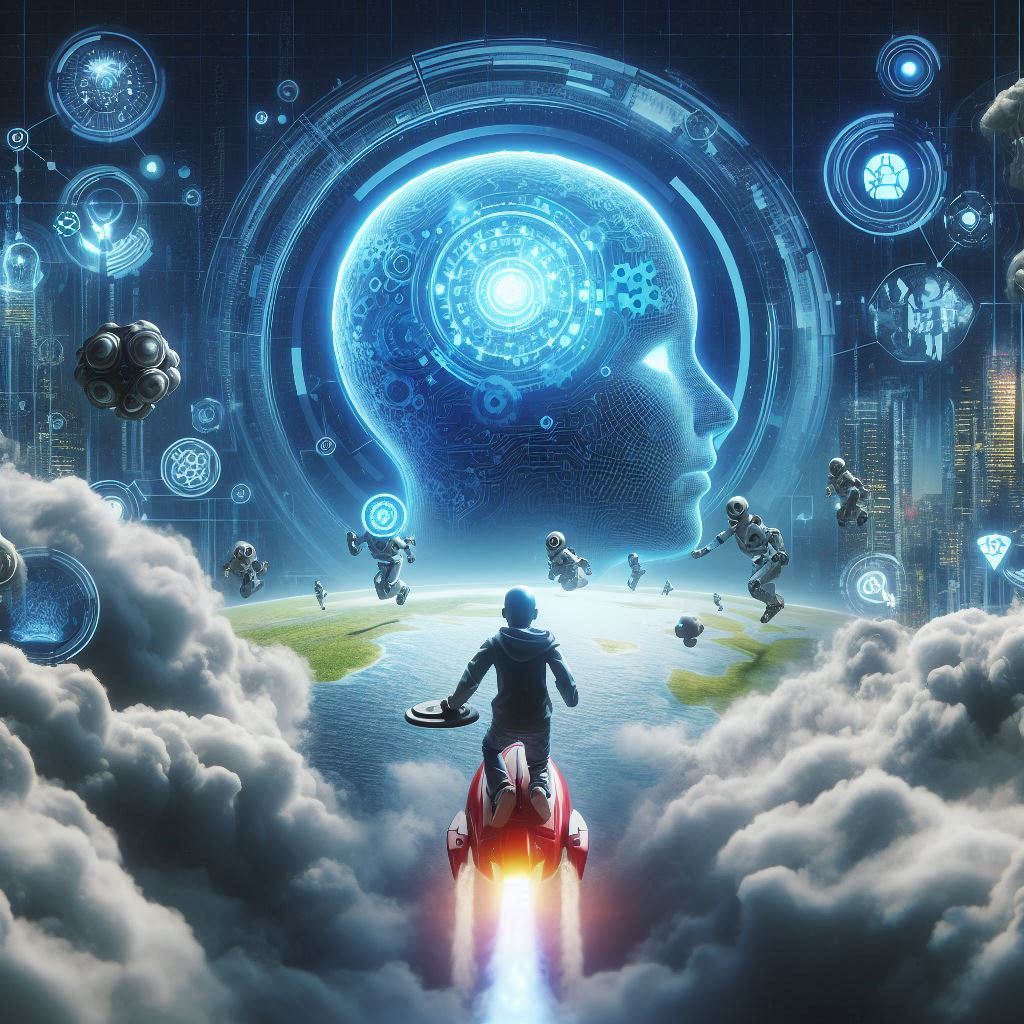From NPCs to Procedural Generation: How AI Shapes the Gaming Experience
Introduction to AI in Gaming
Artificial Intelligence (AI) has revolutionized the gaming industry, transcending traditional gameplay mechanics and enhancing user experience through advanced algorithms and machine learning. From Non-Playable Characters (NPCs) exhibiting lifelike behaviors to procedurally generated worlds, AI-driven innovations have reshaped how games are developed, played, and perceived.
NPCs: The Evolution of Artificial Intelligence
Non-Playable Characters (NPCs) serve as crucial elements in modern gaming narratives. Initially governed by scripted behaviors, NPCs now leverage AI to adapt dynamically to player actions, creating immersive and responsive environments. Games like Cyberpunk 2077 and The Elder Scrolls V: Skyrim showcase AI-driven NPCs that emulate human-like decision-making, enhancing gameplay depth and realism.
Procedural Generation: Crafting Infinite Worlds
Procedural generation, powered by AI algorithms, enables developers to generate vast, unique game worlds algorithmically. Games such as No Man’s Sky utilize procedural generation to create expansive universes with diverse landscapes, flora, and fauna, providing players with endless exploration opportunities. This technology not only optimizes development time but also delivers rich, unpredictable gaming experiences.
AI and Game Design: Balancing Challenge and Enjoyment
AI algorithms play a pivotal role in game design, balancing challenge and enjoyment by adjusting difficulty dynamically based on player skill and behavior. Games like Dark Souls employ AI to create formidable opponents that adapt to player tactics, ensuring a challenging yet rewarding gameplay experience. This adaptive AI fosters engagement and encourages strategic thinking among players.
Emerging Trends: AI-Powered Virtual Realities and Beyond
The integration of AI extends beyond traditional gaming formats, paving the way for AI-powered virtual realities (VR) and augmented realities (AR). Technologies like Oculus Rift and Magic Leap leverage AI to enhance sensory immersion and interaction within virtual environments, offering users unprecedented levels of realism and interactivity.
The Future of AI in Gaming: Innovations and Challenges
Looking ahead, AI continues to drive innovation in gaming, with advancements in natural language processing (NLP) enabling more sophisticated dialogue systems and narrative branching. However, challenges such as ethical considerations regarding AI-driven content moderation and algorithmic bias necessitate careful scrutiny and regulation. Nevertheless, the transformative impact of AI in gaming promises to redefine entertainment landscapes and captivate audiences globally.

Incorporating tables into an article like this can provide structured data or comparative information. Here’s an example:
Table: Comparison of AI Techniques in Gaming
| Technique | Description | Example |
|---|---|---|
| NPC AI | Dynamic behavior modeling for NPCs based on player interaction. | Cyberpunk 2077 |
| Procedural Generation | Algorithmic creation of game environments for endless variety. | No Man’s Sky |
| Adaptive AI | Real-time adjustment of game difficulty based on player performance. | Dark Soul
|
Pros and Cons of AI in Gaming
Introduction
Artificial Intelligence (AI) has become a cornerstone of modern gaming, reshaping how games are developed and experienced. From creating lifelike NPCs to generating vast, unique game worlds, AI introduces a plethora of possibilities. However, its integration also brings challenges. Here, we explore the pros and cons of AI in gaming, providing a comprehensive understanding of its impact on the industry.
Pros
Enhanced Gameplay Dynamics
Description: AI technology significantly enhances the behavior and interactions of NPCs and enemies in video games. NPCs now exhibit more realistic responses and behaviors, making game worlds feel more alive and immersive.
Example: In games like The Elder Scrolls V: Skyrim, NPCs have complex behavior patterns, responding to the player’s actions in ways that add depth to the gameplay experience.
Procedural Generation
Description: Procedural generation algorithms use AI to create vast and diverse game worlds, landscapes, and environments automatically. This not only saves development time but also ensures that each gameplay experience is unique.
Example: No Man’s Sky utilizes procedural generation to create a virtually infinite universe with diverse planets and ecosystems, providing players with endless exploration opportunities.
Link: Procedural Generation Overview
Dynamic Difficulty Adjustment
Description: AI-powered dynamic difficulty adjustment tailors gameplay challenges based on the player’s skill level and performance. This ensures that games remain engaging and appropriately challenging for all players.
Example: In games like Resident Evil 4, AI adjusts the difficulty of enemies and puzzles in real-time based on how well the player is performing.
Link: Dynamic Difficulty Adjustment
Improved Game Design
Description: AI assists game designers in creating more complex and dynamic game mechanics, scenarios, and narratives. It optimizes gameplay balance and flow, enhancing the overall player experience.
Example: AI is used in games like Middle-earth: Shadow of Mordor to create the Nemesis System, where enemies remember past encounters with the player, making each interaction unique and personal.
Link: AI in Game Design
Cons
Ethical Concerns
Description: Ethical concerns arise around AI in gaming, including issues of bias in AI algorithms, representation in NPCs, and fairness in gameplay mechanics. These issues can impact player experience and perceptions of game integrity.
Example: AI algorithms may inadvertently perpetuate stereotypes or unfair advantages, leading to a lack of diversity and inclusion in games.
Link: Ethical Concerns in AI
Complex Development Process
Description: Implementing AI technologies in games requires specialized skills and resources. It can increase development costs and complexity, particularly for smaller game studios or independent developers.
Example: Developing advanced AI systems for games like Cyberpunk 2077 requires significant investment in time and expertise, which can be challenging for smaller teams.
Link: Challenges in AI Game Development
Over-reliance on Predictability
Description: Some argue that AI-driven content generation and game design tools may limit creative expression and innovation in game development. There is concern that reliance on AI could homogenize game content and reduce diversity in gameplay experiences.
Example: Over-reliance on procedural generation might lead to environments that feel generic or lack a distinct artistic vision.
Link: AI Limitations in Creativit,
Conclusion
AI’s role in gaming is multifaceted, offering significant advantages in enhancing gameplay dynamics, procedural generation, and game design. However, developers must navigate ethical concerns, development complexities, predictability, and potential impacts on creativity. As AI continues to evolve, its influence on gaming will undoubtedly grow, requiring a balanced approach to leverage its strengths while addressing its challenges.

1 thought on “From NPCs to Procedural Generation”